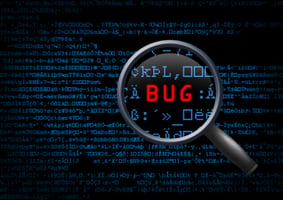Open source software has become a quiet backbone of much of the technology we use every day. From...
Open Source, Open Hearts: How Church Tech Can Foster Unity
In a world where division seems easier than connection, the Church is called to be different. Not just by what we preach, but by how we live—and how we serve each other. While software may not be the first thing that comes to mind when we talk about Christian unity, tools matter. The systems we choose reflect our values. And in the case of open source church software, the value is clear: shared tools for a shared mission.
Acts 2:44-47 gives us a picture of the early church that is both inspiring and challenging:
“All the believers were together and had everything in common. They sold property and possessions to give to anyone who had need. Every day they continued to meet together… they broke bread in their homes and ate together with glad and sincere hearts… And the Lord added to their number daily those who were being saved.”
This wasn’t just spiritual unity—it was practical, sacrificial, and visible. They didn’t just believe the same things; they shared life. Their unity made the Gospel attractive.
Today, many churches still long for that kind of unity. But instead, we often find ourselves isolated—not just relationally, but technically. Ministries buy expensive, systems that are sold by huge companies. Congregations struggle with incompatible tools. Small churches get priced out. Collaboration becomes difficult, not because we don’t want to work together, but because we can’t afford to.
That’s where open source software offers something radical: a return to shared tools for a shared mission. When churches use platforms like those from ChurchApps, they’re not just saving money—they’re participating in a movement rooted in generosity and common purpose. Open source means anyone can contribute, adapt, and improve the tools for ministry. No one is excluded.
This mirrors the unity Jesus prayed for in John 17:
“I pray… that all of them may be one, Father, just as you are in me and I am in you… I in them and you in me—so that they may be brought to complete unity.”
(John 17:20–23)
Unity isn’t just about being in the same room or using the same vocabulary. It's about belonging to one another in Christ. As Ross Cochran puts it in Not Off Limits:
“We are all united, in the first place, by something deeper than mental assent or congregational behaviors. We are united by Christ.” (pg. 23)
When churches choose to collaborate instead of compete, when they share resources instead of hoard them, when they build tools that bless the whole Body of Christ, we see that deeper unity in action.
Open source church software isn't just good technology—it’s good theology. It's an invitation to live out Acts 2 and John 17 in digital form. It’s a way for churches of all sizes to stand together in mission, ministry, and mutual care.
Unity isn’t just a feeling. It’s a practice. And sometimes, it starts with the software we choose.



